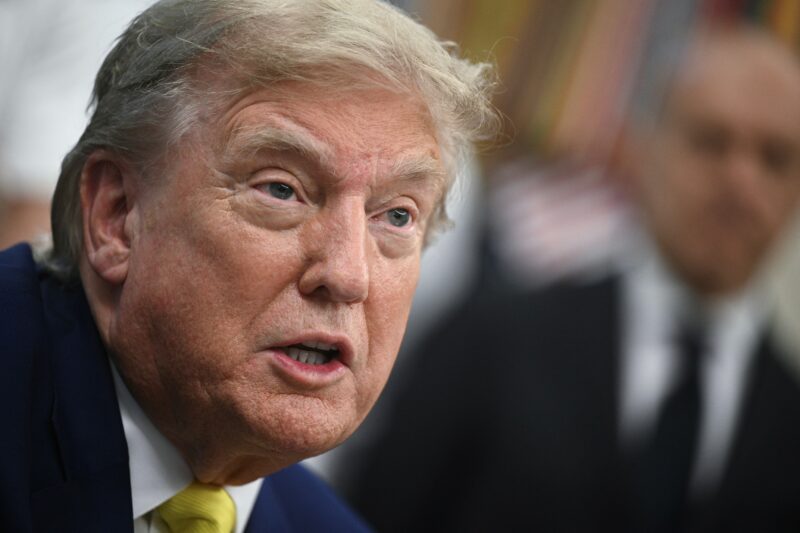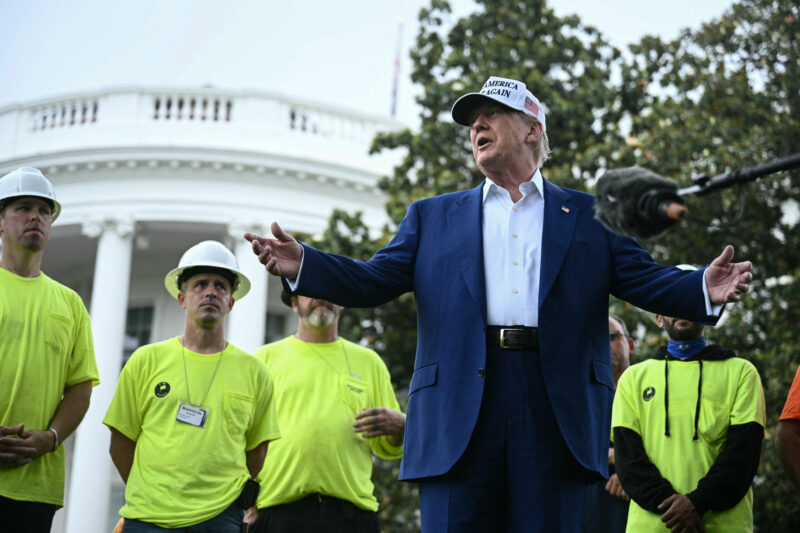The key moments from the testy Tucker Carlson-Ted Cruz showdown
The Texas senator's appearance on Carlson's podcast went from civil to contentious as the two sparred over Israel, Iran, AIPAC

Screenshot
Sen. Ted Cruz on Tucker Carlson's podcast on Wednesday.
Sen. Ted Cruz’s (R-TX) interview on Tucker Carlson’s podcast published on Wednesday devolved into a shouting match at times between the two GOP heavyweights, with insults and charges of ignorance and antisemitism dominating the two-hour conversation between one of the Republican Party’s biggest pro-Israel champions and one of the most vocal critics of the U.S.-Israel relationship.
The interview was relatively civil for the first hour, but began to devolve when Carlson and Cruz started debating the benefits of the U.S. relationship with Israel and the merits of Israel and the United States allegedly spying on one another.
Carlson pressed Cruz to say that allies spying on one another was wrong, which Cruz responded to by asking why Carlson and others had an “obsession with Israel” while ignoring similar behavior from other allies. Carlson rejected that he was “obsessed with Israel” before noting that he has never taken money from AIPAC, which he referred to as “the Israel lobby.”
The conversation started to become more animated as the two could not find common ground on the role and purpose of AIPAC, with Carlson insisting that the organization, which is made up of U.S. citizens advocating for the U.S.-Israel relationship, needed to be registered under the Foreign Agents Registration Act — an argument sometimes used as an antisemitic dog whistle accusing Jewish supporters of Israel of dual loyalty — and Cruz vehemently disagreeing.
The interview grew more tense after Cruz accused Carlson of having an “obsession with Israel” and asked why he was so focused on asking, “What about the Jews? What about the Jews?” without being critical of other foreign governments.
“Oh, I’m an antisemite now?” Carlson replied wryly.
“You’re asking, ‘Why are the Jews controlling our foreign policy?” Cruz told Carlson after the latter said he had accused him of antisemitism in a “sleazy feline way.”
Cruz told Carlson to give him “another reason why the obsession is Israel,” to which Carlson responded: “I am in no sense obsessed with Israel. We are on the brink of war with Iran, and so these are valid questions.”
“You asked me why I’m obsessed with Israel three minutes after telling me that when you first ran for Congress, you elucidated one of your main goals, which is to defend Israel. I’m the one who’s obsessed with Israel,” Carlson said, adding, “Shame on you for conflating” Jews and Israel.
“Israel and Jews have nothing to do with each other?” Cruz asked after Carlson claimed there was not a correlation.
Carlson said he was “totally opposed” to Iran’s desire to kill all Jews and Americans, which Cruz replied to by saying: “Except you don’t want to do anything about it.”
The two then sparred over Carlson’s focus on Israel’s influence on U.S. foreign policy, with Cruz claiming Carlson was placing too much emphasis on the Jewish state while ignoring the malign influence of other governments.
“I don’t even like talking about Israel. I never do because it’s not worth being called antisemites from AIPAC recipients,” Carlson said. “But now we are on the verge of joining a war and I just want to be clear about why we’re doing this.”
Carlson stated that anyone who criticized Israel’s actions were “instantly called an antisemite for asking questions” and said Israel was “the only government that no one will ever criticize.” Cruz said he rejected that assertion, pointing to statements from Rep. Rashida Tlaib (D-MI), a progressive House lawmaker and frequent critic of Israeli Prime Minister Benjamin Netanyahu. Carlson scoffed at Cruz’s Tlaib reference, explaining that he was referring to the consequences for “Republicans that I would vote for, including you.”
Regarding Iran, the two sparred over the regime’s apparent efforts to assassinate Trump, which Carlson denied had occurred.
“I voted for Donald Trump. I campaigned for Donald Trump. He’s our president, and we’re on the cusp of a war. So if there’s evidence that Iran paid a hitman to kill Donald Trump and is currently doing that, where is that? What are you even talking about? I’ve never heard that before. Where’s the evidence? Who are these people? Why haven’t they been arrested? Why are we not at war with Iran?” Carlson asked.
The Justice Department, in November 2024, did, in fact, indict multiple individuals in connection to the assassination plot, arresting two individuals involved in the scheme in the United States and issuing a warrant for a third, described as an Islamic Revolutionary Guard Corps asset.
The plot had been extensively reported upon, both at the time and in the months since. Cruz criticized Carlson for his suspicions about the plot.
The former Fox host asked Cruz shortly after to explain why he’d be proud to say that he came to Washington with the goal of being the most pro-Israel member of Congress, to which Cruz responded by citing his Christian faith, after which the two sparred about Christian scripture.
The senator subsequently argued that he does not solely cite his faith as his reason for supporting Israel in his professional capacity, telling Carlson that he had championed the Jewish state because of his belief that Israel is our best ally in the Middle East.
“I think the most acute national security threat facing America right now is the threat of a nuclear Iran. I think China is the biggest long-term threat, but acute in the near term is a nuclear Iran. And I think Israel is doing a massive favor to America right now by trying to take out Iran’s nuclear capacity,” he continued, later adding, “You want to ask: how does supporting Israel benefit us? Right now, this tiny little country the size of the state of New Jersey is fighting our enemies for us and taking out their top military leadership and trying to take out their nuclear capacity. That makes America much safer.”
Returning to the subject of Cruz’s faith, the Texas senator said that his support for Israel was also rooted in his Christian faith, citing the biblical phrase: “Those who bless Israel will be blessed and those who curse Israel will be cursed.”
Carlson mocked the fact that Cruz’s faith informed his pro-Israel views, and asked specifically the biblical citation. After Cruz acknowledged he didn’t know the exact verse, the podcast host then incorrectly answered his own question, mistakenly saying it was in Genesis. (The verse is from Numbers 24:9.)
The interview again devolved into chaos after Cruz acknowledged that upon sharp questioning that he did not know the exact population size of Iran, prompting both men to question what the other knew, if anything, about the country. Carlson accused Cruz of being dismissive of the consequences of the military actions he was calling for, while Cruz accused Carlson of adopting the foreign policy platform of progressive Democrats.
The first 60 minutes of the interview, which was released on Wednesday, was largely civil with Carlson asking Cruz to explain his support for Israel’s operation to destroy Iran’s nuclear program and regime change in Tehran.
The Texas senator argued that his recent comments in favor of toppling Iran’s supreme leader, Ayatollah Ali Khamenei, were not an endorsement of a U.S. military invasion of Iran but rather of the idea of a democratic Iran.
The two initially agreed that it would be better for the U.S. without an Iranian regime that aspires to destroy Western civilization and that they were frustrated by the interventionist versus isolationist binary that has increasingly characterized Republican foreign policy.
“For a long time, people have perceived two different poles of Republican foreign policy. There have been interventionists, and those have been people like John McCain and Lindsey Graham George W. Bush, and there have been isolationists, and the most prominent of those have been Ron Paul and Rand Paul and there are others. People perceive those are the two choices, you’ve got to be one of the other. I’ve always thought both were wrong. I don’t agree with either one,” Cruz said.
“For whatever it’s worth, I agree with you. I don’t know who set up that binary, but there are lots of choices, actually,” Carlson responded. Carlson is seen by many, however, as one of the leading figures of the isolationist wing.
The two men described themselves as non-interventionist hawks, with each saying they believed in the principle that the “central touchpoint for U.S. foreign policy and for any question of military intervention should be the vital national security interests of the United States” before disagreeing on whether the situation in Middle East qualified as such.
Jewish Insider’s senior congressional correspondent Marc Rod contributed to this report.

































